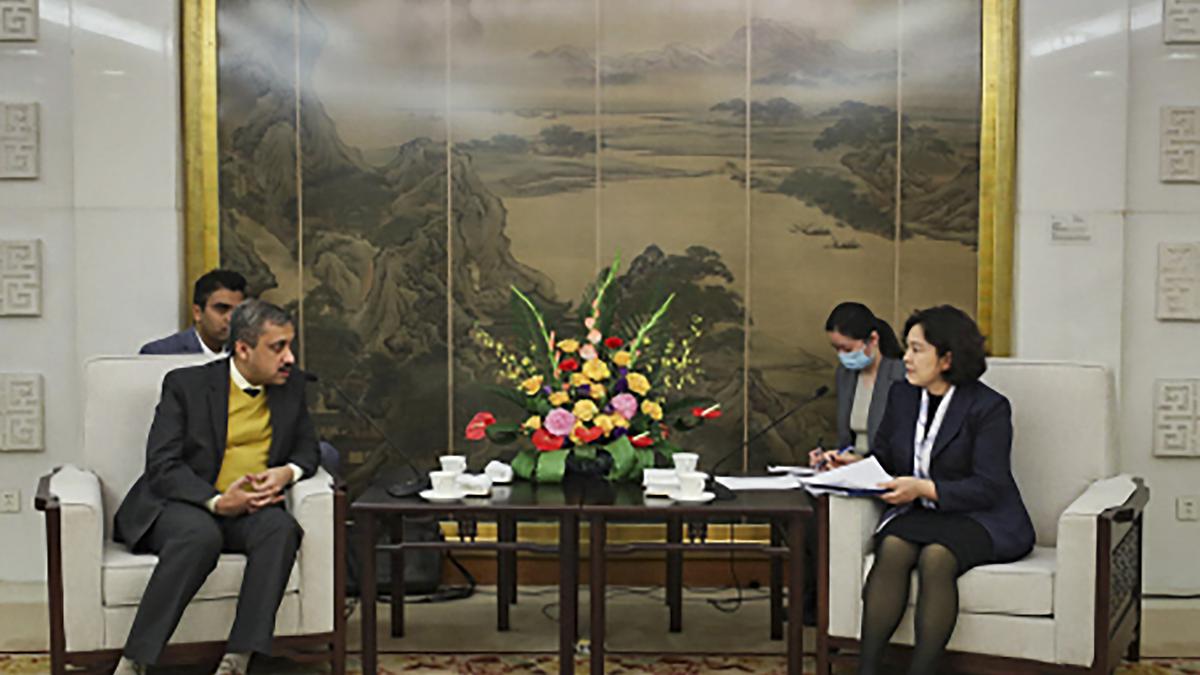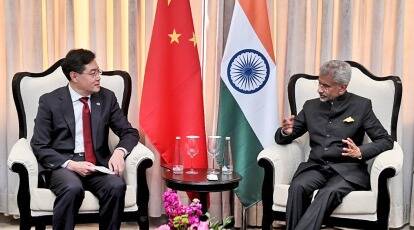As per the yearly threat assessment by the US Intelligence Community, there is a chance of escalating tensions between India and China, and India and Pakistan, which could lead to conflicts between these nations.
In the report, it was highlighted that the ongoing crises between India and Pakistan are a cause for worry due to the possibility of a dangerous escalation between the two nations armed with nuclear weapons.
The US Intelligence Community’s report warns that the increased military presence of Indo-Chinese in the disputed border region raises the possibility of a conflict between two nuclear-armed countries. The report also mentions that past incidents of standoffs have shown that even minor happenings along the Line of Actual Control (LAC) can quickly escalate into something much more dangerous.

The report states that Pakistan has a track record of providing support to anti-India militant organisations. Additionally, the leadership of Prime Minister Narendra Modi is more likely to use military action as a response to provocations from Pakistan, in comparison to its previous approach. This heightened tension on both sides increases the possibility of a conflict, with incidents of violent unrest in Kashmir or a militant attack in India potentially acting as triggers.
Ned Price, the spokesperson of the US State Department, has stated that the US and Pakistan have a mutual interest in resolving threats to the security of the region. “Efforts by both the countries will help in achieving a peaceful and growth-oriented South and Central Asia that is free from terrorism”, he further stated.
India’s stand on Pakistan and China
Indo-Pak have been a bumpy ride since the time both countries attained their independence. The reasons that are mainly stated are that India is a democratic country, upholding the rules of law and citizens’ will, whereas Pakistan’s government is military-run which works on personal whims and fancies rather than the growth of the country.
Indian side, in past years has mentioned that terrorism and talk cannot happen simultaneously; thus, if Pakistan wants to have a dialogue with India, it should come clean and immediately stop cross-border terrorism, drug supply, and any material and moral support to terrorists.
Recently, PM Shehbaz Sharif of Pakistan broke the ice and showed his willingness to have an “honest and critical talk” with PM Modi on “irksome issues like Kashmir”. The move comes at a time when Pakistan’s economy has hit rock bottom leading to dwindling foreign reserves, mounting foreign debt, and political instability.
The two mega powers of South Asia are also not enjoying cordial relations since the 2020 Galwan valley clash. The mounting pressure on both sides—military buildup and infrastructural development—is a worrisome matter and poses a threat to both countries’ territorial sovereignty.
However, the truce was finally made after 3 years of no talks when the Indian External Affairs Ministry Secretary Shilpak Ambule had an in-person conversation with Hua Chunying, Chinese Assistant Foreign Minister, in Beijing. Both countries discussed proposals for disengagement along the areas of the LAC (Line of Actual Control) and restoring normalcy.

Recently, India, which hosted the G20 Foreign Ministers Meeting in New Delhi, gave a warm welcome to Chinese Foreign Minister Qin Gang, where both countries focused on addressing burning issues of border security, enhancing bilateral ties, and restoring peace and normalcy in the border areas.

India is also set to chair the SCO summit this year, where Chinese and Pakistan are both member countries. This will further allow an opportunity to resolve the outstanding issues with both countries and come up with solutions that bring peace and tranquillity to South and Southeast Asia and contribute to the region’s growth and development.













